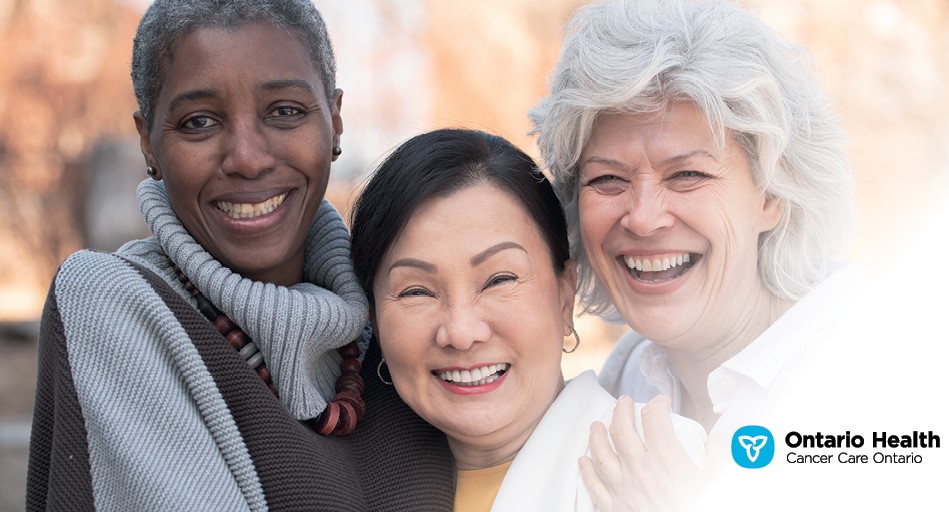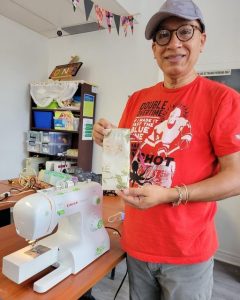Breast cancer is one of the most diagnosed cancers in Ontario. However, more people in Ontario survive breast cancer than almost every other cancer.
In honour of Mother’s Day, we encourage you to share the following information with a loved one in your life.
Lower the risk of getting breast cancer:
Some risk factors (things that can raise the chances of getting a disease) cannot be changed, such as age, height, genetic makeup, having dense breasts and hormone changes throughout life.
There are several things you can do to lower your chances of getting breast cancer, including:
- Trying not to drink alcohol
- Quitting smoking
- Being physically active as part of everyday life
- Having a healthy body weight
Learn more about your breast cancer risk and how to reduce your risk at My CancerIQ.
Get checked for breast cancer:
Getting checked regularly with mammography (a type of X-ray) is important because it can find cancer early when it is less likely to have spread to other parts of the body. Treatment may also have a better chance of working when breast cancer is found early.
The Ontario Breast Screening Program (OBSP) recommends that:
- Most people ages 50 to 74 who are eligible for the OBSP get checked every two years with a mammogram. Eligible people ages 50 to 74 can talk to their family doctor or nurse practitioner about getting checked or contact an OBSP location to make a mammogram appointment (a referral is not needed).
- To find an OBSP location near you, click here or call 1-800-668-9304.
- People ages 30 to 69 who meet the eligibility criteria for the High Risk OBSP get checked once a year with both a mammogram and breast MRI.
- If you are 30 to 69 years old and think you may be at high risk of getting breast cancer based on your personal or family history, talk to your family doctor or nurse practitioner*.
*If you do not have a family doctor or nurse practitioner, call Health Connect Ontario at 811 or click here.
Most people with an abnormal mammogram do not have breast cancer; however, more tests will be needed. Be sure to go for any follow-up tests and appointments that are booked for you.
Be Breast Aware:
This means knowing how your breasts normally look and feel. Regardless of your age, if you notice any changes in your breasts or have concerns, see your family doctor or nurse practitioner. Most changes are not cancer, but they should be checked right away.
For more information on breast cancer screening, visit cancercareontario.ca/breast and talk to your family doctor or nurse practitioner about your breast health and screening test options.



